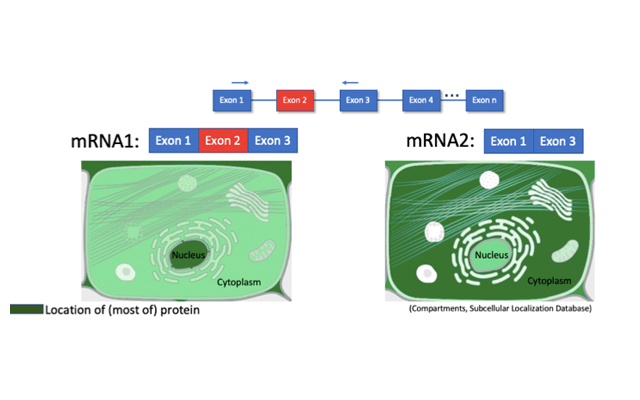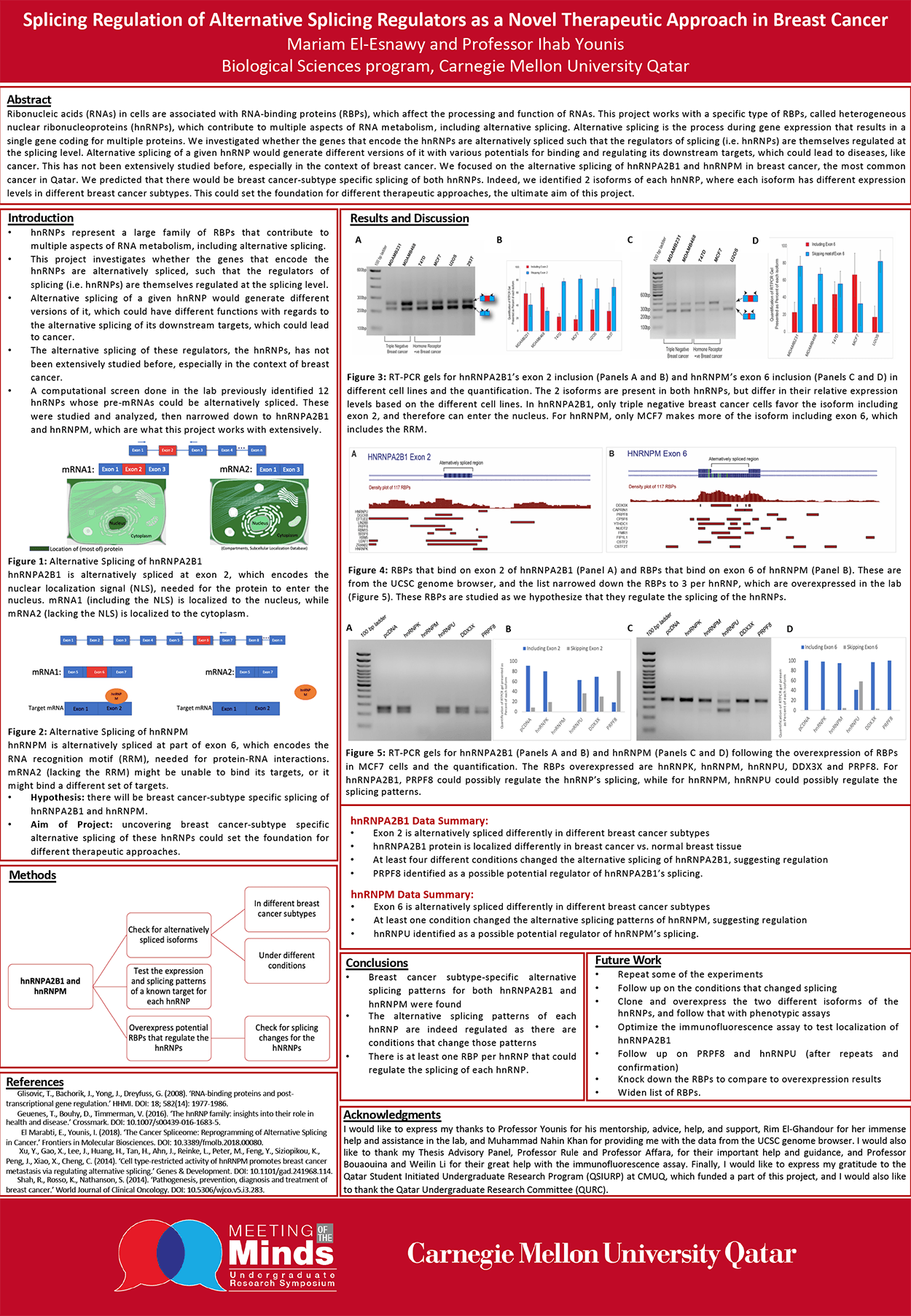Ribonucleic acids (RNAs) in cells are associated with RNA-binding proteins (RBPs), which affect the processing and function of RNAs. This project works with a specific type of RBPs, called heterogeneous nuclear ribonucleoproteins (hnRNPs), which contribute to multiple aspects of RNA metabolism, including alternative splicing. Alternative splicing is the process during gene expression that results in a single gene coding for multiple proteins. This project investigates whether the genes that encode the hnRNPs are alternatively spliced such that the regulators of splicing (i.e. hnRNPs) are themselves regulated at the splicing level. Alternatively splicing a given hnRNP would generate different versions of it with various potentials for binding and regulating its downstream targets, which could lead to diseases, like cancer. This has not been extensively studied before, especially in the context of breast cancer. We will focus on the alternative splicing of hnRNPA2B1 and hnRNPM in breast cancer, the most common cancer in Qatar. We predict that there will be breast-cancer-subtype specific splicing of both hnRNPs. Indeed, we identified 2 isoforms of each hnNRP, where each isoform has different expression levels and phenotypic effects in different breast cancer subtypes. This could set the foundation for different therapeutic approaches, which is the ultimate aim of this project.



